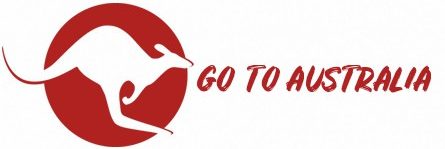Australia is the smallest, flattest, driest continent on Earth, and the sixth largest continent. The continent is divided into six states and two territories. The capital city is Canberra, and is situated in the Australian Capital Territory. The other states are New South Wales, Victoria, Queensland, South Australia, Western Australia, Tasmania and the last territory is the Northern Territory. Most of the population can be found on the outer areas of Australia, along the coast.
Australia has a population of twenty one million, mostly situated in the capital cities. The indigenous population are the Aboriginals. Twenty five percent of Australia’s population are people born overseas, making it a diverse, multicultural society.
There are many tourist attractions, such as The Great Barrier Reef, Sydney Harbour Bridge, Whitsunday Islands, the Kinberley region, Kakadu National Park, Uluru-Kata Tjuta (formerly Ayer’s Rock), and Flinders Rangers. Tours are conducted regularly, and can be booked from your local travel agency.
Being one of the most outstanding economies of the world in recent years, Australia has a high-growth, low-inflation, low interest rate economy, which provides a high standard of living. There is an efficient government sector, a flexible labour market, a very competitive business sector and the cost of living is low. The national currency is the Australian Dollar.
Social events are plentiful, being surrounded by oceans, some common leisure activities are surfing, snorkelling, and swimming, fishing and boating. Sport clubs (such as AFL, NRL, and Cricket), gymnasiums, swimming pools, athletic tracks and other social clubs can be found locally all over the nation.
The cities have a vibrant night life, with night clubs, festivals, and hotels being open until late. Most streets are well lit and public transport by train, bus and tram is very cheap, even subsidised for concession card holders. Shopping centres and department stores are plentiful, housing cheap.
When you arrive in Australia you need to follow these necessary steps:
Apply for a Tax File Number – to register for a Tax File number you need to get in contact with the Australian Taxation Office. A tax file number is needed before you can receive an income of any type, such as a wage, salary, government payments and money earned from investments, such as money from interest on bank accounts.
Tax File Number applications can be sent to you, or alternatively, can be done online.
Tax return forms need to be completed every year, and the deadline is the 31st October.
Register with Medicare – Medicare is Australia’s health care system. To register you need a Medicare Enrolment Form. This form can be found on the Medicare website. If you do not register, you may have trouble receiving subsidies if you need medical attention at any time.
Open a bank account –there are many banks and financial institutions throughout Australia. Local bank branches can be found in even the most remote country locations.
Register with Centrelink – Centrelink assists those in need, and to assist people to become self-sufficient. To register you can apply at a local Centrelink branch.
Contact the Health Undertaking Service – Australia has very high standard of health, and to keep these standards up, people who migrate, either to migrate permanently, or a temporary visit, we must satisfy the health requirement specified in the Migration Regulations. Migrants need to complete an information form, which can be obtained from the Department of Immigration and Citizenship.
Register for Schooling – Australia’s national language is English. English is taught throughout Australian Primary and High Schools. Other languages are taught also as lessons in high school, such as Japanese, Chinese, German, and Indonesian.
Enrol your children in a school – you will need to enrol your children, if any, at your local Public Primary or High School. You can register at your local school reception.
Apply for a driver’s licence – drivers licences are needed to drive a vehicle on public roads. Also your drivers licence is your most common form of identification. To obtain a licence you need to pass an assessment on driving, both theory and practical.
In case of an emergency, the number to dial is 000. The departments you can contact are the Police, Fire Department and Ambulance. These services are on call 24 hours a day, 7 days a week. The crime rate is low, and the reports of assault and violent crimes are minimal. The Federal Police and state police departments maintain the law well.
If you have itchy feet, and are ready to move, how about considering to make the move down under. Maybe Australia is the place for your future.

